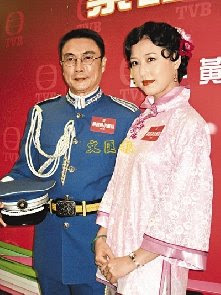That evening, Prince Zhuang ordered Bayanshan and Zengfu to move Jia Huating’s bedclothes to a room where they slept together and the prince sodomized Jia Huating. Later on, Prince Zhuang sodomized Jia Huating many times. He also sodomized another boy in the twelfth month of the year.
On the first day of the sixth month, in the sixteenth year of the Daoguang reign (1836), through the introduction of Chen Wu, a civilian from Zhili province Jia Yu pawned his thirteen-sui son Jia Huating to Prince Zhuang’s household to learn the qingyin style of drama for three years. Prince Zhuang paid fifteen diao of copper money and promised that Jia Yu could take Jia Huating back after three years. But Prince Zhuang ordered Jia Huating to serve in the main room in the tenth month of that year. Prince Zhuang ordered two of his third-degree guards, Bayanshan and Zengfu, to look after Jia Huating. One day in the tenth month, Prince Zhuang granted a silver watch to Jia Huating and let Jia Huating eat together with him. That evening, Prince Zhuang ordered Bayanshan and Zengfu to move Jia Huating’s bedclothes to a room where they slept together and the prince sodomized Jia Huating. Later on, Prince Zhuang sodomized Jia Huating many times. He also sodomized another boy in the twelfth month of the year.My classmate Hu Xiangyu notes, "This case is cited from JJCLF: 03-3780-034; Xuzeng xing’an huilan (abbr. XZXAHL, A Continuing Edition of the Conspectus of Legal Cases), vol. 14: 431; Qing xuanzong shilu, vol.294: 25b-26a. The emperor did not mention other’s punishments in these sources. Generally, other punishments should also be approved. This is not a severe case, the jurists memorialized it to the emperor due simple to Prince Zhuang’s distinguished status."
When Jia Yu wanted to visit his son, he asked Chen Wu to help him go to the prince’s household on the fourth day of the first month, in the seventeenth year of the Daoguang reign. Chen Wu had already heard that Jia Huating was sodomized by Prince Zhuang. He told Jia Yu that Prince Zhuang didn’t let his son study drama but rather made him serve in the main room. Chen Wu helped Jia Yu to enter Prince Zhuang’s household. When Jia Yu saw his son and discovered that his son was sodomized by Prince Zhuang, he wanted to take Jia Huating back home, but worried that the prince’s household would not permit it and that the prince would take back the body price (shenjia) given for his son. Therefore Jia Yu accused Prince Zhuang at the Yamen of the Commander-general of Metropolitan Infantry Brigade. After the accusation, Jia Yu declared that he would cancel the accusation if Prince Zhuang would agree to send his son back and to pay for their traveling expenses. He asked Chen Wu to send a letter to the prince’s household to propose the deal but Chen refused.
The Commander-general of the Metropolitan Infantry Brigade transferred the case to the Board of Punishment. The Board of Punishment informed the Imperial Clan Court and these two yamens judged the case together. The jurists adjudicated both Prince Zhuang and the boy as commoners. The jurists stated that Prince Zhuang should receive a punishment of 80 blows of the heavy bamboo according to the statute of “consensual illicit sex” and the thirteen-sui-old boy Jia Huating was immunized from punishment due to his young age. It was legal and appropriate that Jia Yu charge Prince Zhuang after he knew that his son had been sodomized by Prince Zhuang. Jia Yu was not punished for accusing Prince Zhuang. But because Jia Yu tried to make a deal with Prince Zhuang and Chen Wu acted as a middleman when Jia Yu pawned his son as an actor to the prince household, both of them should receive 80 blows of the heavy bamboo according to the statute “doing that which ought not to be done, serious cases.” Bayanshan and Zengfu had complied with their master’s order to move Jia Huating’s bedclothes, but they were to be exempted from punishment.
Yidou being a prince, there was no precise article to regulate how he should be punished for a crime of 80 blows of the heavy bamboo. The Board of Officials (libu) answered that if an official committed a personal crime (sizui) of 80 blows of they heavy bamboo, the official should be demoted three ranks and commuted to another position, and the punishment could not be offset. According to the Substatute of Imperial Clan Court, if a hereditary official (shizhi guanyuan) would be demoted to lower rank and to another place due to some inappropriate deeds, every rank should be commuted to a fine of half-salary for three years. Therefore, Prince Zhuang’s punishment should be commuted to a fine of half salary as a prince (qinwang feng) for nine years, and the fine should not be offset. Also, the jurists asked the emperor to order the Imperial Clan Court to supervise the prince household to expel the other twenty-six young boys who were learning drama and let their relatives take them back.
But when this case was sent to the emperor for approval, the Daoguang Emperor said: “Prince Zhuang’s crime has been commuted to a fine of half prince salary for nine years. The punishment is definitely based on the substatutes. However, what he did is really despicable, so Yidou will be fined his full prince salary for five years as a an example and a warning.”
Update, 10/14/2009: Hu Xiangyu gave me a copy of the Chinese text a few weeks ago. I think it might be worth it to go through this carefully, if only I can find the time.
Read more...


